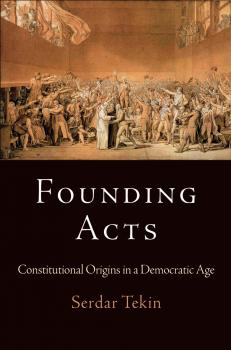ТОП просматриваемых книг сайта:
Serdar Tekin
Список книг автора Serdar TekinАннотация
All democratic constitutions feature «the people» as their author and ultimate source of legitimacy. They claim to embody the political form that citizens are in some sense supposed to have given themselves. But in what sense, exactly? When does a constitution really or genuinely speak for the people? Such questions are especially pertinent to our present condition, where the voice of «the people» turns out to be irrevocably fragmented, and people themselves want to speak and be heard in their own voices. Founding Acts explores the relationship between constitutional claims of popular sovereignty and the practice of constitution-making in our pluralistic age. Serdar Tekin argues that the process of making a constitution, or its pedigree, is as morally and politically significant as its content. Consequently, democratic constitution-making is not only about making a democratic constitution but also about making it, as much as possible, democratically. Tekin develops two overarching arguments in support of this claim. First, citizen participation in the process of constitution-making is essential to the democratic legitimacy of a new constitution. Second, collective action, that is, the political experience of constructing public life together, is what binds diverse people into a democratic peoplehood. Bringing into dialogue a wide range of canonical and contemporary thinkers, Tekin examines historical realities extending from revolutionary America and France to contemporary South Africa and Germany.

